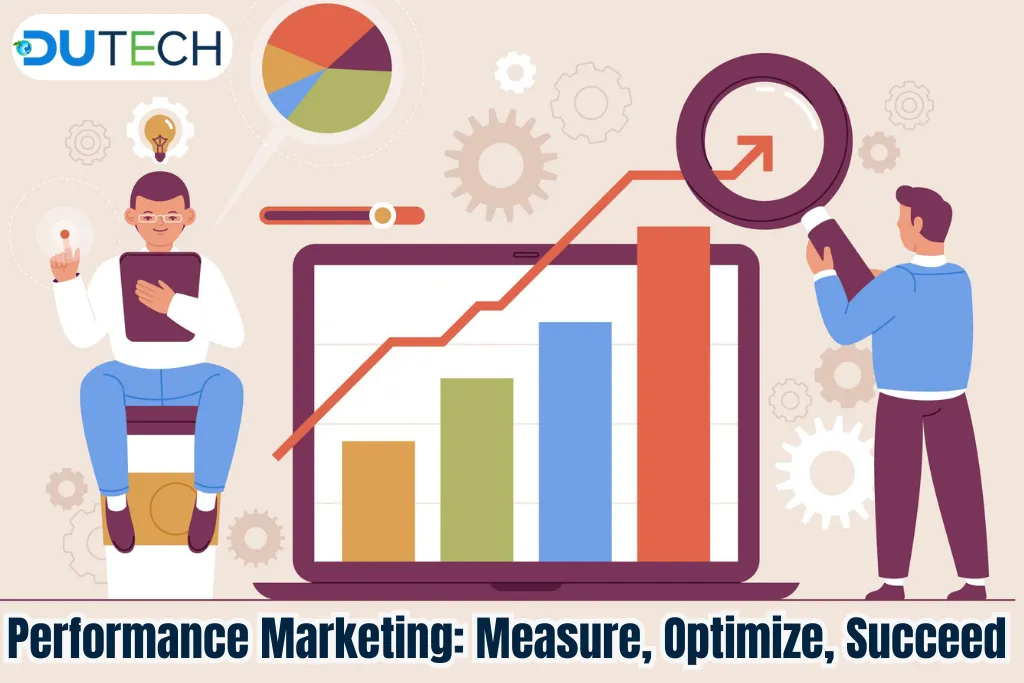Performance Marketing: Measure, Optimize, Succeed

In today’s competitive business landscape, achieving success requires more than just implementing marketing strategies; it requires measuring their performance, optimizing them for better results, and ultimately succeeding in reaching your goals. Performance marketing offers a data-driven approach that allows businesses to effectively measure the impact of their marketing efforts, make informed optimizations, and achieve tangible results. In this blog post, we will delve into the world of performance marketing and explore how businesses can leverage it to measure, optimize, and ultimately succeed in their marketing endeavors.
Strategies for Data-Driven Marketing Success
1. Understanding Performance Marketing:
Performance marketing is a results-oriented approach that focuses on measuring the performance of marketing campaigns based on specific key performance indicators (KPIs). Unlike traditional marketing methods that rely on guesswork, performance marketing utilizes data and analytics to track and evaluate the effectiveness of each marketing initiative. By monitoring and analyzing campaign performance, businesses can make data-driven decisions to optimize their strategies and achieve better outcomes.
2. Key Components of Performance Marketing:
Performance marketing encompasses several key components that contribute to its effectiveness. These include:
a. Precise Targeting: Performance marketing allows businesses to target specific audience segments based on demographics, interests, behaviors, or other relevant criteria. This precise targeting ensures that marketing messages effectively reach the intended audience, maximizing the potential for conversion and engagement.
b. Measurable KPIs: Performance marketing relies on measurable KPIs to evaluate success. These can include metrics such as click-through rates, conversion rates, customer acquisition costs, and return on investment (ROI). By setting clear goals and tracking these KPIs, businesses can assess the effectiveness of their marketing efforts and make necessary adjustments.
c. Data Analytics: Data analytics plays a crucial role in performance marketing. By analyzing campaign data, businesses gain valuable insights into customer behavior, preferences, and trends. This information enables them to optimize their marketing strategies, personalize messaging, and make informed decisions to drive better results.
3. Optimizing Campaigns for Success:
The data-driven nature of performance marketing allows businesses to continually optimize their campaigns for maximum success. By analyzing campaign data, businesses can identify areas of improvement, refine targeting strategies, experiment with different creative elements, and allocate resources effectively. These optimizations help businesses increase campaign performance, maximize ROI, and achieve their marketing objectives.
4. Adapting to Changing Market Conditions:
Performance marketing is inherently adaptable to changing market conditions. As consumer behaviors and preferences evolve, businesses can leverage performance marketing to quickly adjust their strategies. By monitoring data in real-time, businesses can identify emerging trends, customer preferences, and shifts in the market. This agility enables them to make timely adjustments to their campaigns and stay ahead of the competition.
5. Driving Long-Term Success:
Performance marketing is not just about short-term gains; it focuses on driving long-term success. By continuously measuring, optimizing, and refining marketing efforts, businesses can build a strong foundation for sustainable growth. The iterative nature of performance marketing ensures that businesses are consistently improving their strategies, adapting to market dynamics, and achieving long-term success in a rapidly changing business landscape.
Conclusion
Performance marketing provides businesses with a powerful framework to measure, optimize, and succeed in their marketing endeavors. By leveraging precise targeting, measurable KPIs, data analytics, and continuous optimization, businesses can drive better results, maximize ROI, and achieve their marketing objectives. Embrace the power of performance marketing and unlock your business’s full potential for success.
